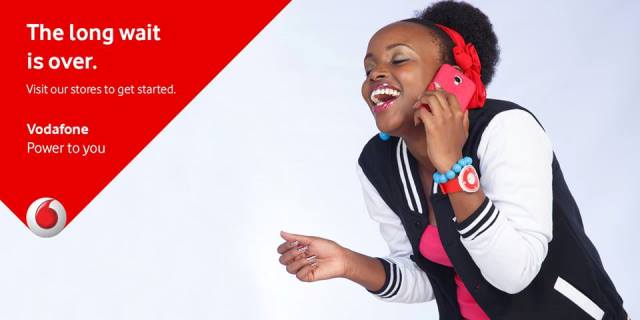Vodafone Group CEO Nick Read has revealed the world’s second largest telecom operator’s plan to reduce Opex and enhance Capex.

Capex
Vodafone’s capital expenditure was stable at €3.0 billion in first half of fiscal 2020 as against €3.1 billion in H1 fiscal 2019.
Vodafone said it now expects its Capex as a percentage of the total revenues to be around 17 percent for the three year period ending in FY22, excluding integration costs, as compared with 13.7 percent in the first half. Vodafone enhanced its capital intensity following the acquisition of Liberty Global business.
“Capex is higher than our prior medium term capital intensity guidance of mid-teens, reflecting the fact that the Liberty Global cable assets have materially higher capital intensity than our existing business,” Nick Read said.
Vodafone said it is the largest provider of Gigabit-capable next generation network (NGN) infrastructure in Europe. Vodafone added 17 million cable homes in Germany and CEE to its footprint, increasing the number of homes connected by NGN network in Europe to 54 million. Vodafone reaches 127 million NGN homes in Europe through a combination of owned infrastructure, strategic partnerships and wholesale.
Vodafone is rapidly upgrading its cable infrastructure using DOCSIS 3.1 technology, and aims to market Gigabit broadband speeds to around 50 million households in cable and FTTH footprint by the end of FY23, compared to 24 million today.
Vodafone has launched 5G in seven European markets, with services available in 58 cities with speeds of up to 1Gbps.
Vodafone has launched 5G in Spain, Italy and Romania in June, the UK and Germany in July, Ireland in August and Hungary in October.
5G roaming is live for Vodafone 5G customers roaming on Vodafone networks in Germany, Italy, the UK and Spain.
Vodafone’s 5G network will be available in nine European markets by the end of the current financial year.
Opex
Vodafone aims to achieve reduction in operating expenses in Europe and Common Functions of at least €1.2 billion by FY21 compared to FY18. Vodafone delivered €0.2 billion of net Opex reductions in H1, half of full year target of €0.4 billion.
Vodafone is transforming customer-facing operations, supported by automation, artificial intelligence and IT capabilities, in order to improve the customer experience and to reduce cost base.
The new digital approach to customer acquisition is already contributing to the improved commercial performance, as it delivers targeted and personalised one-to-one marketing messages. These platforms also provide personalised offers to customers in 11 markets, with 16 markets expected to be using the new platforms by FY21.
Vodafone aims to generate more than 40 percent of sales through digital channels by the end of FY21 compared to around 20 percent at present, reducing the €2.5 billion in commissions that it paid in FY19 to third party distributors and resellers.
MyVodafone app will become customers’ primary channel for sales, self-service, rewards, and help. Vodafone is developing a range of loyalty programs in order to drive increased frequency of usage on MyVodafone.
VeryMe rewards programme in the UK has 2.5 million customers signed up and 12 million rewards claimed to date. It launched the new MyVodafone app in 4 markets, with 16 markets targeted by the end of FY20.
Vodafone is transforming its retail footprint to support digital strategy, targeting an 11 minute transaction time for new customers. It plans to increase its footprint of Express and Flagship stores and significantly reduce Standard format stores.
Vodafone aims to transform 40 percent of stores while reducing store footprint by 15 percent, enabling the operator to cut the €0.8 billion annual cost of its retail activities.
Vodafone is automating and digitising customer services operations to improve the customer experience and to reduce the €1.2 billion annual cost of these operations.
Vodafone has deployed TOBi chatbots in 14 markets. TOBi handled 14 million conversations across the group in September, representing 19 percent of customer contacts. Vodafone aims to achieve 40 percent reduction in customer contact frequency by the end of FY21.
Vodafone has 23,000 employees in Vodafone Shared Service (VSS) centres in India, Egypt and Eastern Europe. Vodafone aims at deploying Robotic Process Automation (RPA) to automate manual and repetitive processes. It’s expanding the scope of VSS to include network operations, IT testing and maintenance activities.
Vodafone is using analytics and machine learning tools to improve network performance and prioritise capital expenditure, with the goal of saving €1 billion by FY21.
Vodafone is automating network monitoring and diagnosis functions. Vodafone aims to move 65 percent of IT applications to the cloud by FY21. Vodafone’s operating expenses for technology and support operations including Shared Services were €2.9 billion in FY19. It aims to reduce these costs at a high single digit rate annually.





